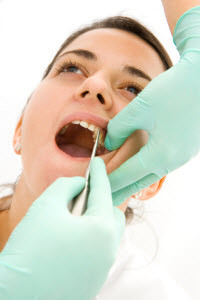 A wisdom tooth can flare up at anytime, and this is when action is required.
A wisdom tooth can flare up at anytime, and this is when action is required.
Emergency Wisdom Tooth Extraction
What can you do when the pain is radiating through your oral cavity and causing agony?
An emergency solution is a must, and this is where a high-quality wisdom tooth extraction is going to be the necessary treatment.
With this world-class emergency dental clinic in Albuquerque, you will be able to receive immediate treatment at any time of the day.
Simple
The extraction is going to be simple ensuring you’re not adding additional pressure to the area near your tooth. This is important, so you’re able to eat as required and not feel troubled because of the continuous pain.
At this dental clinic, we use professional techniques and modern equipment to help with the wisdom tooth extraction enabling you to feel good as soon as possible.
Painless
Who wants to feel pain during the process? You will already be in a severe amount of discomfort leading to the emergency visit, and this dental clinic is going to work hard in ensuring the results are on par with your requirements.
The treatment is going to be as painless as you want it to be.
Quick
How long will our specialists take once you have arrived at the clinic? You will be able to receive immediate treatment and not have to fret over things being delayed or the pain lingering forever.
Come in and make sure the right professional is taking a look at your wisdom tooth.
Those who call now will be able to receive immediate value for their wisdom tooth pain. It is time to take action and get rid of the wisdom tooth before the pain becomes unbearable.
We are the finest emergency dental clinic for all of your emergency and will be open around the clock.


 One of the first potential signs is if you have wisdom teeth growing in. The majority of people will not only have wisdom teeth, but will need them removed because they come in and crowd other teeth or damage the root system. We’ve seen plenty of cases where one wisdom tooth could have a negative domino affect on multiple teeth on that side of your mouth. Getting wisdom teeth removed is never a bad idea.
One of the first potential signs is if you have wisdom teeth growing in. The majority of people will not only have wisdom teeth, but will need them removed because they come in and crowd other teeth or damage the root system. We’ve seen plenty of cases where one wisdom tooth could have a negative domino affect on multiple teeth on that side of your mouth. Getting wisdom teeth removed is never a bad idea.